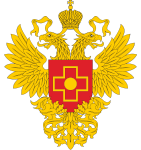
This article is an open access article distributed under the terms and conditions of the Creative Commons Attribution license (CC BY).
ORIGINAL RESEARCH
Hepatitis B, C and TTV virus infection in highly trained athletes
1 Clinical Hospital № 85 of Federal Medical-Biological Agency, Moscow, Russia
2 Chumakov Federal Scientific Center for Research and Development of Immune-and-Biological Products, Moscow, Russia
3 Pirogov Russian National Research Medical University, Moscow, Russia
4 Federal Research and Clinical Center for Sports Medicine and Rehabilitation of the Federal Medical Biological Agency, Moscow, Russia
Correspondence should be addressed: Lubov I. Melnikova
Kashirskoe shosse, 13G, Moscow, 115230, Russia; ur.liam@561lem
Author contribution: Melnikova LI, Kruglova IV — collection of material, data analysis; Kozhanova TV — identification of markers of hepatitis virus infection, manuscript writing; Ilchenko LYu — research design development, data analysis; Morozov IA — research design, manuscript editing; Soboleva NV — identification of the hepatitis virus infection markers, statistical data processing; Nguyen Thi-Hanh — literature analysis; Gordeychuk IV — manuscript editing, approval of the final version of the article.
Compliance with ethical standards: the study was approved by the Ethics Commitee of the Clinical Hospital No. 85 of FMBA of Russia (protocol № 157 dated September 19, 2018). All subjects submitted the informed consent to blood sampling, identification of the hepatitis virus infection markers, and publication of results.
Biomedical support is aimed at provision of the athletes' training at various stages of the training and competition process. Withholding of access to this process due to health problems resulting from hepatitis virus infection is a demanding task. The study was aimed to assess the detection rate of the hepatitis B virus, hepatitis C virus and TT virus infection markers in highly trained athletes. A total of 384 blood serum samples were collected from 240 males and 144 females aged 14–49 (athletes engaged in playing sports, precision sports, technical sports, etc.) within the framework of the multicenter open-label cross-sectional clinical trial. All athletes answered a questionnaire, which included demographic information, characteristics of sports, information about the infection risk factors, information about the fact of past acute viral hepatitis and vaccination. Markers of infection with hepatitis B virus, hepatitis C virus and TTV were identified in blood serum by enzyme immunoassay. HbsAg was detected in two surveyed athletes. Anti-HBcore (surrogate marker of latent HBV infection) was detected in 7% of samples (27/384); 1% of athletes (4/384) had a positive hepatitis C virus total antibody test (anti-HCV). Аnti-HCV in combination with anti-HBcore was detected in one female athlete (14 years of age, tennis player). DNA of TTV, TTMDV and TTMV was detected in blood serum samples of 89.1%, 83.1% and 85.4% of athletes, respectively. High detection rate of the hepatitis virus markers was observed.
Keywords: highly trained athletes, virus markers, hepatitis В, hepatitis С, ТТV